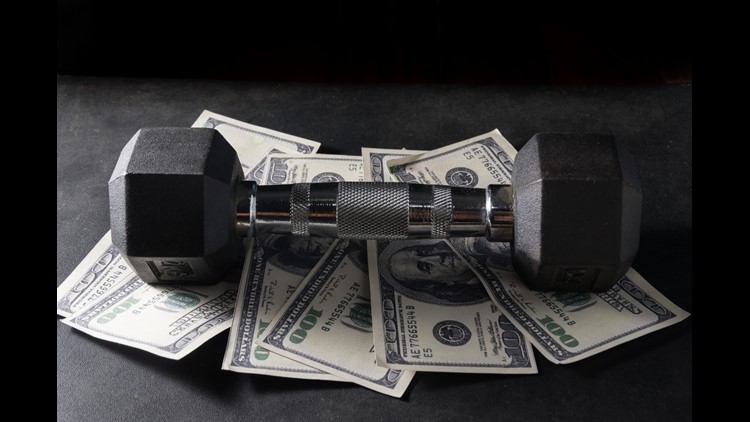![635992777467974699-ThinkstockPhotos-515311032.jpg [image : 84621186]](http://www.gannett-cdn.com/media/2016/05/19/USATODAY/USATODAY/635992777467974699-ThinkstockPhotos-515311032.jpg)
Memorial Day is here. That means it’s crunch time, and not just for those of us focused on shedding pounds and squeezing into swimsuits. Time’s also running out to bulk up your credit score for summer fun.
Making a beach-season workout buddy out of your credit score is wise not only in the sense that better credit generally saves you money, but also because there’s still time to qualify for a rewards credit card capable of saving you as much as $800 over the next four months. Plus, if you’re counting calories with summer love in mind, it’s worth noting that 78% of people in committed relationships consider financial skills to be more important than physical appearance, according to a Citibank Survey.
So here’s a quick four-step workout to get your credit score in shape for summer:
1. Check your credit score. You’ll need a baseline against which to judge your performance, so check your credit score (for free). Two-thirds of people haven’t checked their credit score in the past year, according to the National Foundation for Credit Counseling, which means this simple step alone puts you ahead of the game. You might even discover that your credit is already excellent and you’re perhaps currently overpaying on certain financial products. In such a case, you can get right to upgrading.
2. Review your credit report for errors. To say that credit reports are error-ridden would be an overstatement, but not by much, as roughly a quarter of people have a mistake on one of their files, according to the FTC. Finding a significant error and then successfully completing the dispute process is one of the easiest ways to get a quick credit score bump.
3. Pay down outstanding balances. Credit scores incorporate a metric called “credit utilization,” which is the ratio of your credit card balances to your credit limits. Lower is generally better with this ratio, so try to repay a chunk of a revolving balance, if applicable, or pay your bill a few days prior to your monthly statement being generated in order to reduce the balance reported to the credit bureaus.
4. Satisfy collection accounts. The newest credit-score models stop considering collections accounts once they have been paid. Either paying what you owe in full or negotiating a settlement with the collection company could therefore improve your score, and perhaps your odds of credit card approval.
The final step is to re-check your credit score in about a month. If it’s excellent, you’ll be able to apply for one of the best travel credit cards on the market and perhaps get an initial bonus worth $400 to $625 in travel expenses.
If your score is fair or bad, just make sure that you have a card with no annual fee, and focus on the fundamentals of paying your bill on time every month (in full if possible) and using only a portion of your credit line.
Odysseas Papadimitriou is CEO of the personal-finance website WalletHub, which offers free credit scores, full credit reports and customized money-saving advice.



![XXX PAPADIMITRIOU-300.JPG [image : 84621678]](http://www.gannett-cdn.com/media/2016/05/19/USATODAY/USATODAY/635992780787675979-XXX-PAPADIMITRIOU-300-62720366.JPG)
